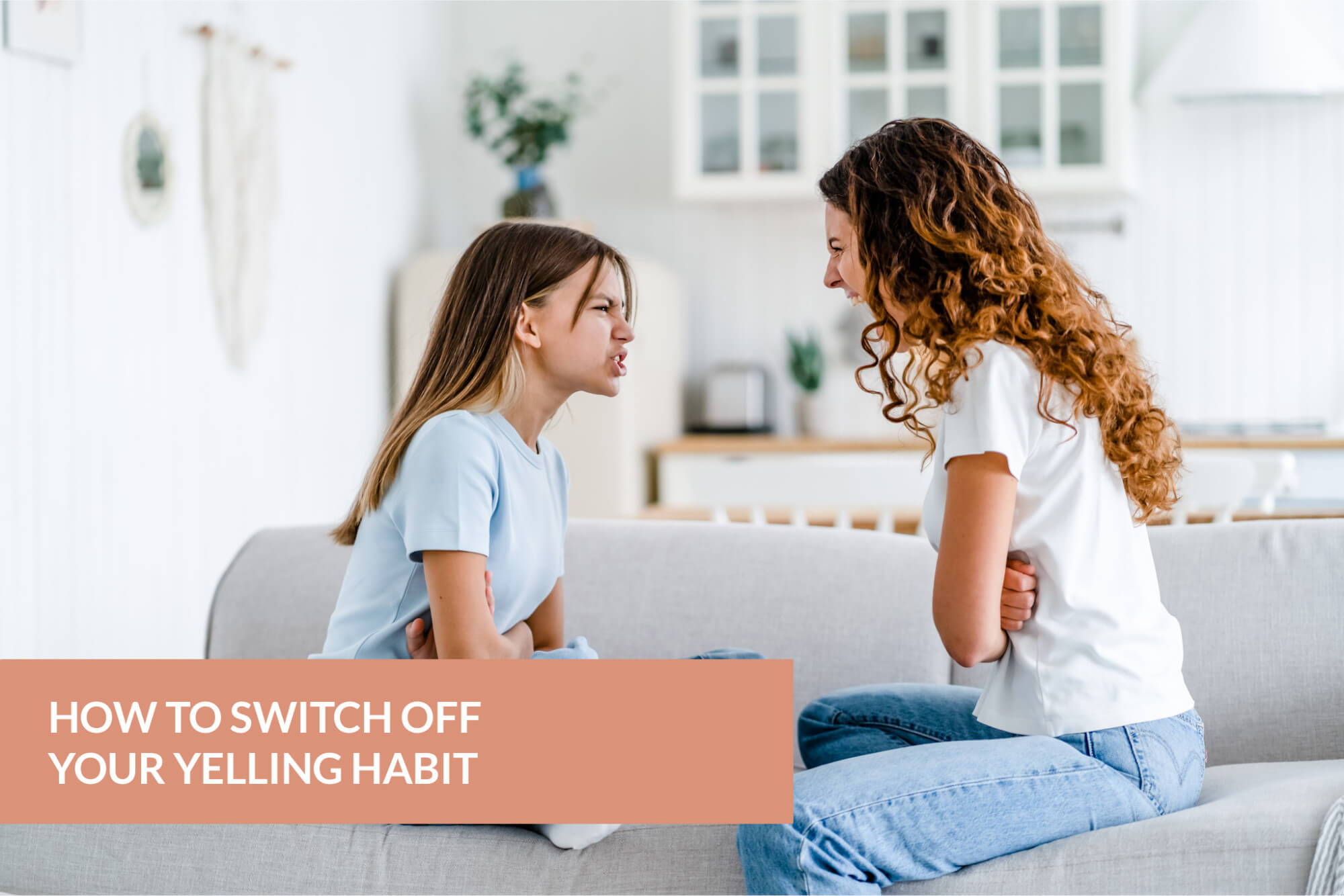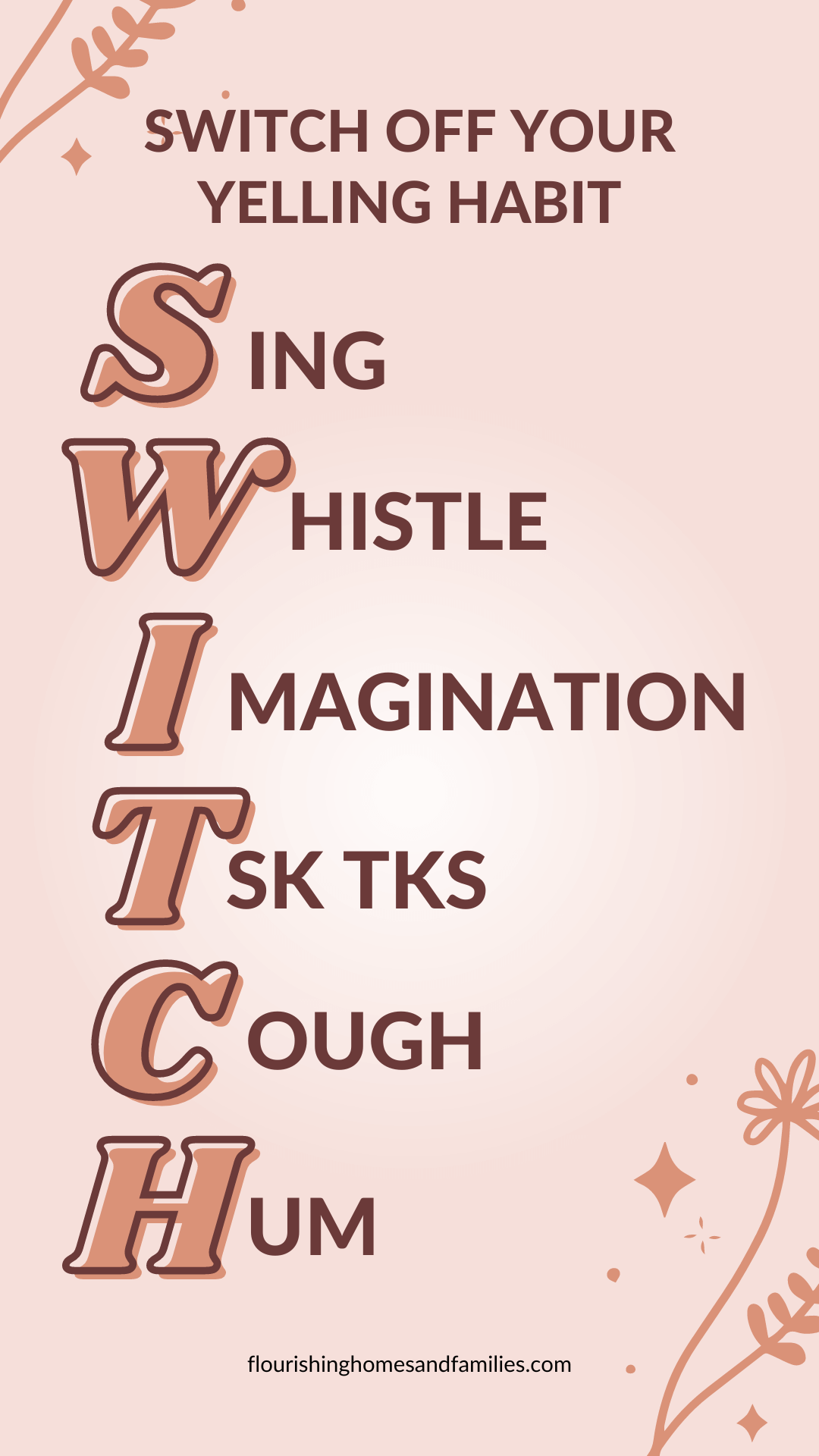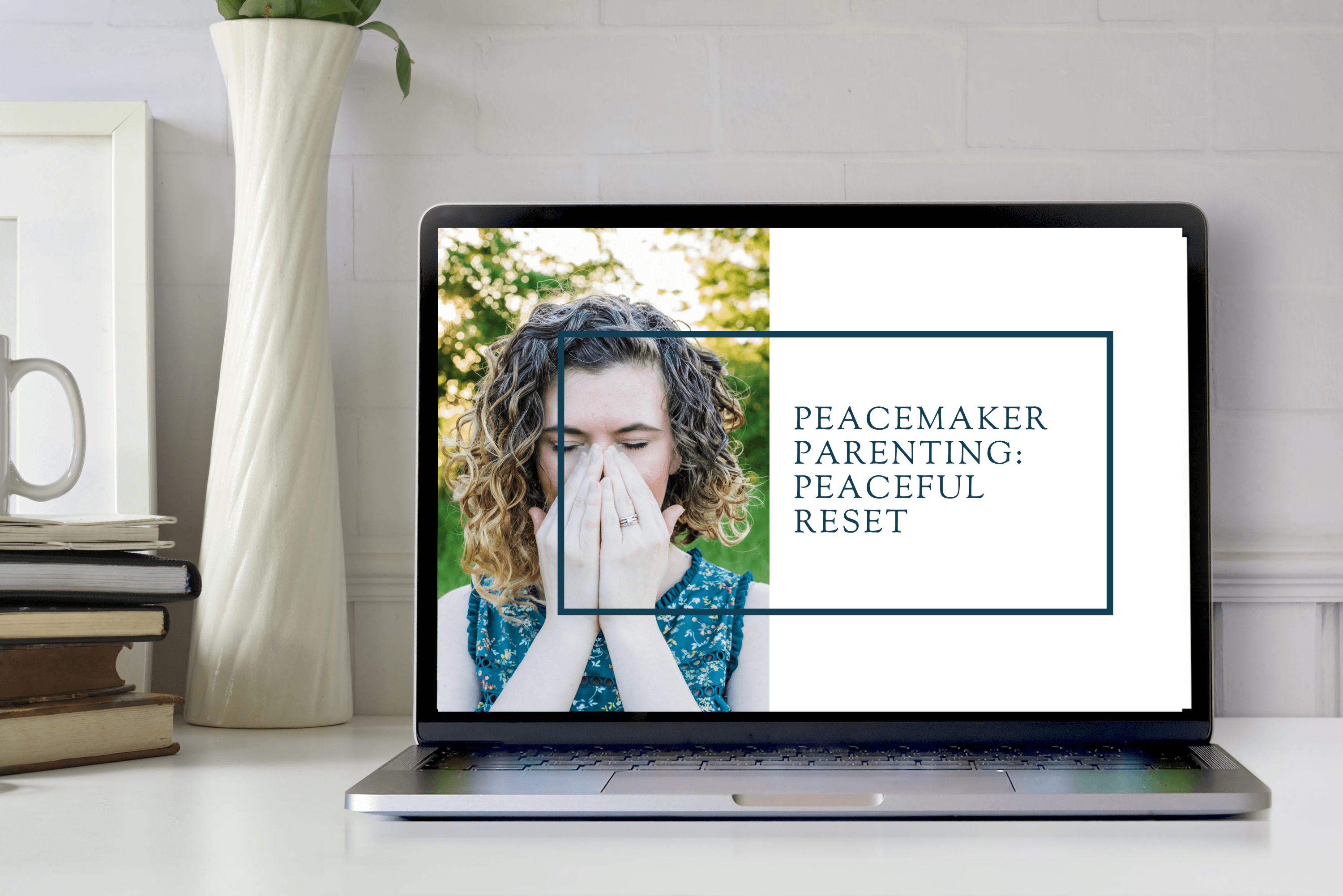
I used to be an angry, yelling mom. Postpartum anxiety left me feeling ragey over every little thing. Too many toys on the floor? Yell at my toddlers to pick them up. Blueberries dropped on the kitchen floor? Yell at them that food belongs on a plate, not the floor. Fighting over a toy? Yell at them that it's not okay to hurt each other! Yes, I even yelled at them to stop yelling in the house.
I knew yelling when it wasn't an emergency was harmful to my children's developing brains and to our relationship. And I was committed to changing and doing better. But for me, learning not to yell took time and effort. (And yes, since my rage was the result of postpartum anxiety, it required addressing the root issues as well,)
One of the tricks I used to keep from yelling was to sing or use a "shocked queen" voice when I caught myself yelling or felt the urge to yell. Over time, I learned to SWITCH off my yelling habit. Here's what I mean:

Interrupt your neural pathways
Whether yelling was passed on to you from your parents, or you started using it out of desperation, once your brain learned to use yelling as a parenting tool, it formed a neurological pathway that makes it really, really easy to resort to yelling. As you work to transform your parenting triggers, create new responses, and use new parenting tools you have to create a "roadblock" on the old pathway so your brain learns to take the new pathway - or new response. Here are some "roadblocks" you can use to S.W.I.T.C.H to a new response so you can start developing new habits.
Start Singing
This is a great tool to use when you're feeling frustrated, or when your kiddo doesn't seem to be listening. Singing has been found to reduce cortisol (the stress hormone) in your body, and because it is a tool for building connection with your child, it can help ease tensions and help you communicate in a less threatening way. Example: kids fighting over a toy - Sing: "You can come up with a plan, to share between two brothers. Or you can put it in my hand, and it will stay with mother. Until you come up with a plan that shows kindness to each other. The great thing with kids is that you don't even have to use a familiar tune! It's fine to totally wing it!
Whistle a Tune
When you catch yourself yelling, switch to whistling a tune for just a few moments. Not only will this serve as a "roadblock" to redirect your brain to the new habit you're working towards, it can also help calm your stress response. Whistling forces you to breathe through pursed lips, which is a proven way to slow your heart rate and calm your central nervous system. Plus, whistling has been found to lighten your mood. If you can't whistle? Don't worry! You can blow through your lips as if you're whistling, and still get the stress- calming benefits.
Imaginative Play
Playfulness is a tried and true way to connect with your child. When you catch yourself yelling, switch to imaginative play to help ease the tension that just exploded. Example: Child isn't cooperating at bed time, and you've just yelled to get in the bath or else... "Or else, when your feet turn to flippers you're going to fall straight to the ground and start flapping and flopping like a fish out of water! It's just about time for mermaid flippers to show up!" You can use any and all imaginative play, and the great thing is that you don't necessarily have to stop yelling! You can continue with the momentum, but shift it to playfulness and silliness.
Tsk, Tsk, Tsk
This one is handy because you can use that *tsk tsk* sound that's notorious for communicating shame, and use it positively instead! When you catch yourself yelling, switch to a Tsk...tsk. sound between your teeth. That sound is an alveolar formed by suction in your mouth, and you can use it to settle your nervous system and interrupt your old neural pathway. Be careful with this one, though. If you're overly hard on yourself, or struggle with guilt and shame, either skip this one, or only use it intentionally and without shaming yourself or your child.
Cough, Cough
It's a bit surprising, but coughing - a really good, guttural cough, can help lower your heart rate by stimulating the vagus nerve. That's why this is a great tool for interrupting yourself when you catch yourself yelling. You already have a bit of force coming out of your mouth - simply redirect it to a few good, hard, coughs to help lower your heart rate and re- wire your brain. Once you've accomplished the task of interrupting the old habit, remember to practice your new response to replace yelling.
Hum...
Kind of like whistling, humming is a great tool to switch off your old habit of yelling. Humming has been found to be a natural way to self soothe, as it reduces stress and induces calmness throughout the body. Humming can be used in place of mindful breathing to softly force air out of your belly. And lastly, humming is known to elevate one's mood and promote feelings of peace and happiness. Tip: Have a song in mind that will be your go-to when you catch yourself yelling. Don't assume you'll be able to come up with one on-the-spot!
Need more helping taming your parenting triggers? Check out our Peacemaker Parenting: Peaceful Reset workshop, it's helped thousands of parents understand and heal their triggers so they can parent with peace and purpose.














0 Comments